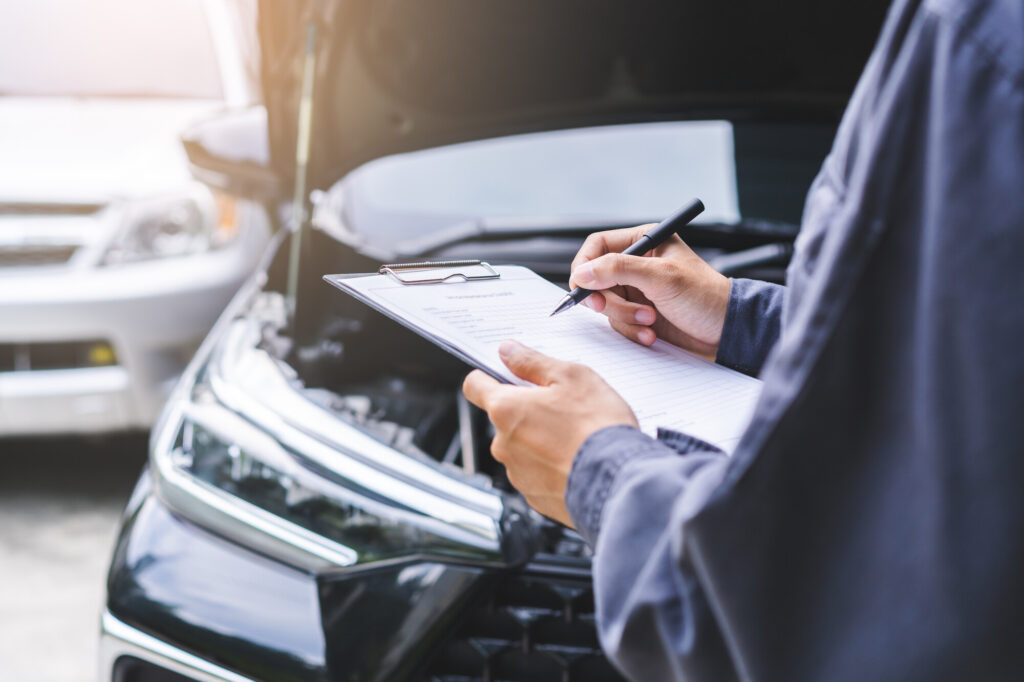Your vehicle is surely one of your biggest investments. However, nobody drives the same car for a lifetime, and after a few years down the line, you would look to replace your old car with a new one. Now, here comes the notion of car depreciation. In simple words, it refers to the sum of value a vehicle will lose out on over time compared to the amount you invested while purchasing the car. The type and condition of your car again determines that figure.
So, how much does a car depreciate over the years?
Well, it’s shocking, but you will have the maximum hit of car depreciation in your very first year of ownership! The moment you take proud possession of your new car and drive away with glory from the showroom, your car will have 9.5% depreciation. According to experts, a brand-new auto will experience 19% of car depreciation in its first year only. But, you would be relieved to know that the car depreciation rate doesn’t rush at this speeding rate after the first year, and you will expect something like a 15% drop in 2nd & 3rd years. Once the vehicle starts approaching its 8-10th anniversary, the depreciation rate starts to decline considerably, and after that, it would just come to a standstill.
As per the motoring costs pundits, when you proceed to buy your new car, it’s wiser to settle with the steams that can retain their value well over time as such cars assure larger savings in the long run. In fact, it’s more important than the car’s fuel efficiency.
However, as mentioned earlier, the cost of car depreciation varies between car models and ranges. For example, if you buy a new car for around £10,000, it will cost you something like £2,000 per year in terms of car depreciation and will be valued at £4,000 after three years. Now, if you buy a luxury car for £50,000, the car depreciation amount would be a whopping £10,000 a year.
Reasons which influence car depreciation
There are various factors which play a decisive role in determining your car depreciation amount.
Mileage
Mileage is a big factor in determining the depreciation value of your car. The more miles travelled, the less valuable your car will be.
How many owners
The car’s depreciation value is also dependent on the number of owners. Yes, the fewer owners your beast has, the better. This is an important point to remember if you are buying a pre-owned car. You MUST check the vehicle’s logbook or its V5C registration prior to investing your hard-earned money in it.
Car model
Some models cause more car depreciation than others. For example, a Citroen C5 would lose up to 76% on average mileage over three years. On the other hand, an Audi A1 Sportback would lose a much lesser 36% within the same period.
Condition of the vehicle
This one is a no-brainer for obvious reasons – if you are buying a car that has had extensive repair and salvage work done on it, it will have reduced value. So, if you are planning to sell your car after a few years, it’s smarter to prefer one that has not had much damage or accident history.
Size of the car
This is another major factor that exerts a major influence on car depreciation value. It’s worth stressing that big-sized luxe wheels would show more car depreciation than smaller ones. Why? Well, big cars demand much more steerage than smaller ones. Moreover, they also mean pricey bills for maintenance and parts.
Fuel economy
Do you know why petrol cars show more car depreciation compared to diesel vehicles? The answer is simple- diesel cars mean better fuel economy than their petrol counterpart. This eventually means that smart car owners would generally prefer the diesel option over the petrol one for better engine efficiency.
Road tax
If you are buying a pre-owned car that you plan to sell off after a few years for a sizeable price, be careful about the Road Fund License that will be payable for it. Fuel-guzzling engines will eventually require more yearly taxes, which means more car depreciation.
Tips to avoid car depreciation
Now, the good thing is you can still do something to avoid car depreciation.
Choose low-depreciating car
You can avoid car depreciation even before you own it- be smarter and search for a slow-depreciating car. Here are the top 5 slow-depreciating cars:
City car: Peugeot 108
Lower medium: Toyota Prius
Supermini: Audi A1
Executive: Jaguar XF
Upper medium: Mercedes-Benz C-Class Coupe
As mentioned earlier, the steepest car depreciation occurs in the first three years only. So, instead of getting a brand-new car, consider a nearly new or used car.
Care well
This is an important point when trying to avoid car depreciation. Excess wear and tear and damages can greatly reduce a car’s value. So, when planning a lofty sale of the wheels down the line, ensure your car is well-protected and try to avoid modifications.
Keep mileage low
The higher the mileage, the lower your car’s value. So, try to keep the mileage down.
Better fuel efficiency
Always try to choose a car that will give you more miles per gallon. The higher the fuel efficiency, the better the car’s value, and the lower the depreciation.
Go small
As mentioned earlier, big-sized steams tend to depreciate fast. So, go small if you are looking for cars with lower depreciation.
Warranty matters
The longer the warranty is shown by a car, the higher its value. It’s a must to check the manufacturer’s warranty before you buy your own steam. Try to settle with a car that comes with seven years or at least five years of warranty assurance.
